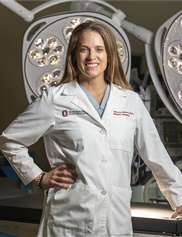Why Choose a Board-Certified Plastic Surgeon
Choose a board-certified plastic surgeon and be confident you are in the care of a highly trained surgeon you can trust.
"I want my surgery for free," my friend tells me. Not an uncommon request from friends of plastic surgeons!
Obvious to me, that means my surgical fee will be waived. Oddly enough, for my friend, an intelligent person in her own right, this meant something completely different. She thought the entire surgery was actually for free. Being the consummate educator that I am, I decided to use this conversation as a teachable moment to instruct my friend about the economics of plastic surgery. Delving further into the topic, I found that one of the most popular Google searches regarding plastic surgery is "plastic surgery costs". Frankly speaking, plastic surgery cost is so paramount, that if you listen to some of my friends and colleagues at our trade meetings, it seems that cost is so often the only determinant factor indicating performance of the surgery or not. In light of these glaring facts, here's a brief primer on the fees associated with plastic surgery.
In performing cosmetic and plastic surgery there are three basic fees that must be considered: 1) the surgical fee, 2) anesthesia fee, and 3) facility fee and materials costs.
The surgical fee is the simplest to understand. Basically, it is what the surgeon takes home. From this fee the surgeon pays for all the costs incurred in becoming and being a surgeon. This may included school loans, malpractice insurance fees, office rent or mortgage, staff salaries, and other costs, to name just a few. The surgical fee is determined by the judgment of one person alone, the surgeon. Depending on his/her practice expenses, he/she determines the fee.
The anesthesia fee is often overlooked by many. Basically, it is what the anesthesiologist takes home. This fee may depend on several factors, including the nature of the surgery, the nature of the anesthesia administered (local, regional or general), the time of surgery and other technical issues as well. The anesthesia fee is usually determined ahead of time between the surgeon, anesthesiologist, and/or the surgical facility.
The facility fee can be difficult to understand and generate. as it is composed of many elements that may not be readily seen. This fee includes the costs of nursing care, medical materials and drugs used during surgery, and other costs of running an ambulatory surgery facility. This is usually a fixed price. Additional material costs may be added, for example, when using breast or facial implants or other materials related to specific cosmetic surgery.
During your plastic surgery consultation, when you start discussing the costs of surgery, it is always worthwhile to ask about each one of these fees. The fact that cosmetic surgery is not covered by medical insurance, and is thus a luxury item paid for by discretionary income, has actually contributed to it becoming affordable and within reach to larger segments of the population. Plastic surgery is one of the last vestiges of the healthcare industry where free market forces act to shape the economic transactions between producer (doctor) and consumer (patient). The more knowledgeable and informed you are, the better the chances you'll get a better product and bigger bang for your buck. A cautionary note, however, is that in plastic surgery, as in most industries, you get what you pay for. Your quality assurance is the doctor's credentials and bedside manner, their board certification in plastic surgery and surgical center accreditation. If all of those factors are satisfactory, then feel free to shop around. And remember, an educated consumer gets the best deal.
The views expressed in this blog are those of the author and do not necessarily reflect the opinions of the American Society of Plastic Surgeons.















